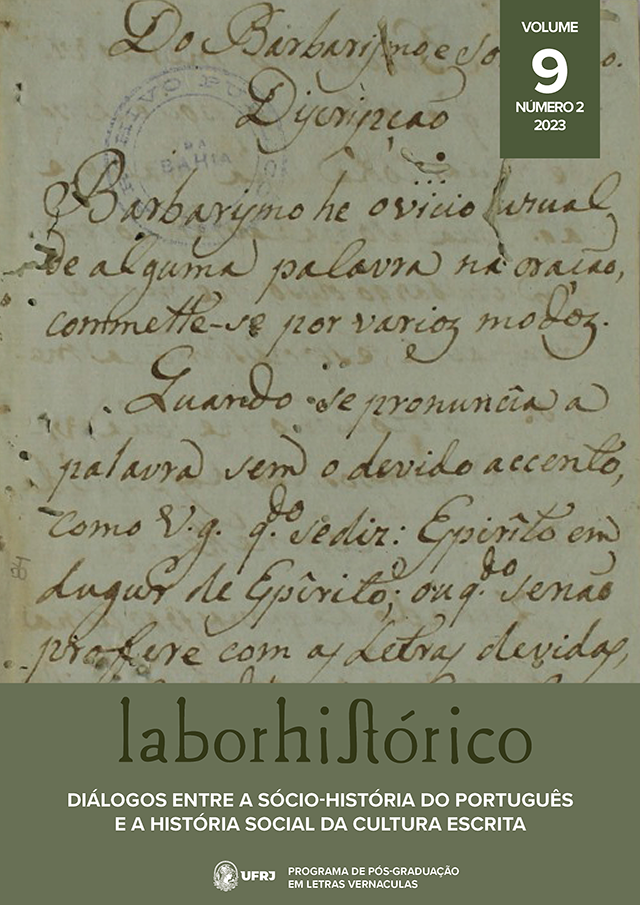The contribution of Wenceslau de Moraes` work to the study of linguistic relationships between Portugal and Japan
DOI:
https://doi.org/10.24206/lh.v9i2.62535Abstract
In one of the many books dedicated to friendship between Portugal and Japan, Wenceslau de Moraes (1854-1929), a passionate traveller about the Japanese culture, refers to his “philological trip in the Japanese grammar” (2015, p. 87), as an invitation to the reader. Although this trip is short in the case of this work, Relance da Alma Japonesa, the challenge invites anyone to research other possible philological incursions in the work of an author characterized by an orientalist leaning, who, following the discovery of Sanskrit, was also a nineteenth-century philological landmark. This aspect is pursued in this paper, which aims to revisit the work of Wenceslau de Moraes with regard to language matters and which, considering the ever-contrastive dimension between East and West that the author employs in such matters, is summarized in the expression of linguistic relations between Portugal and Japan. All linguistic aspects detected in the author's work are mentioned. Wenceslau de Moraes' linguistic approaches can be organized with a certain degree of curtailment in the areas of morphology, syntax, lexicon, onomastics and paremiology.
Downloads
Downloads
Published
Issue
Section
License
Authors who publish with this journal agree to the following:
a. The authors hold copyright of the published papers; authors are the sole responsible party for published papers content; the published paper is licensed under a Creative Commons Attribution-NonCommercial 4.0 International License which allows the sharing of the publication as long as there is acknowledgement of authorship and publishing by Revista LaborHistórico.
b. Authors should seek previous permission from the journal in order to publish their articles as book chapters. Such publications should acknowledge first publishing by LaborHistórico.
c. Authors may publish and distribute their papers (for example, at institutional repositories, author's sites) at any time during or after the editorial process by Revista LaborHistórico.


